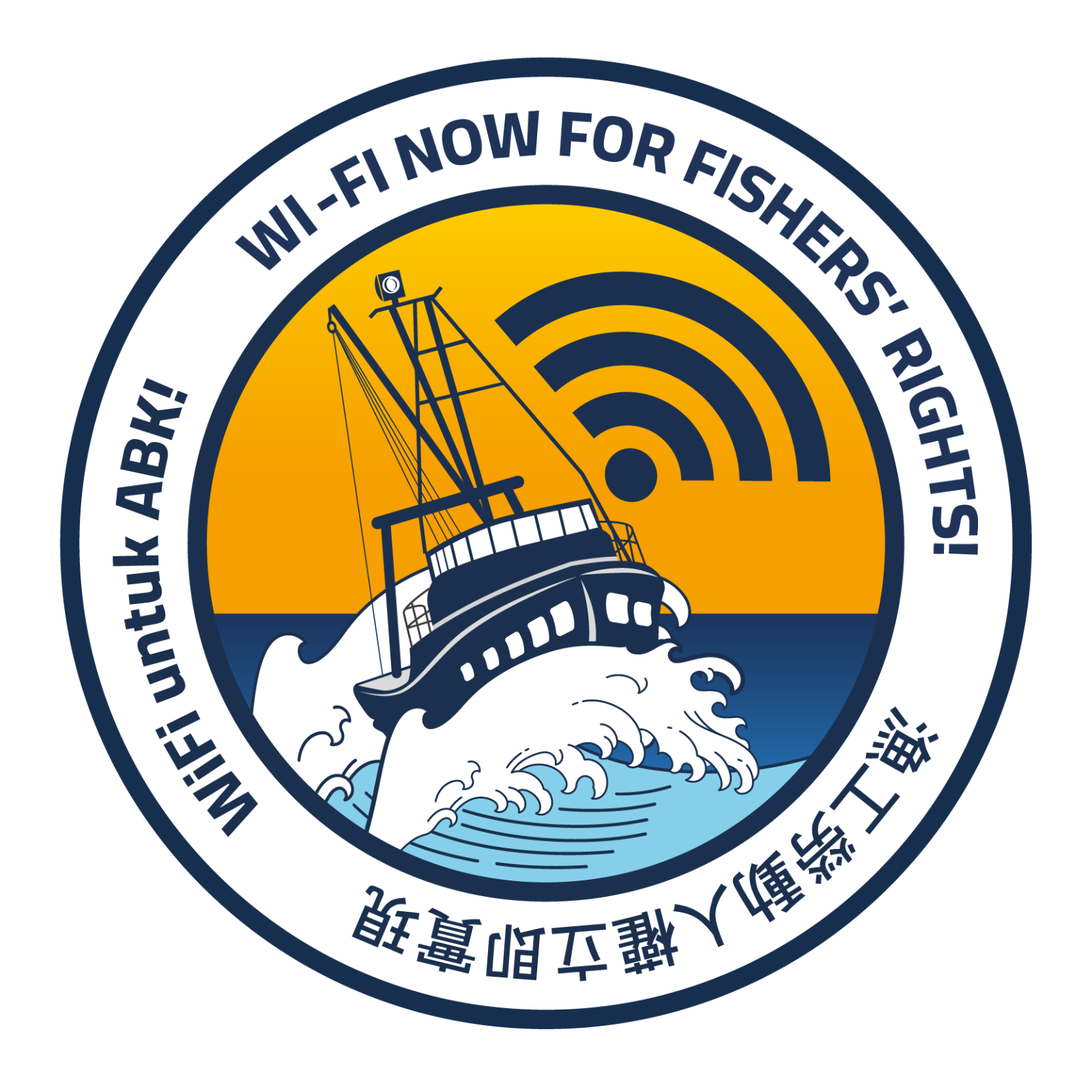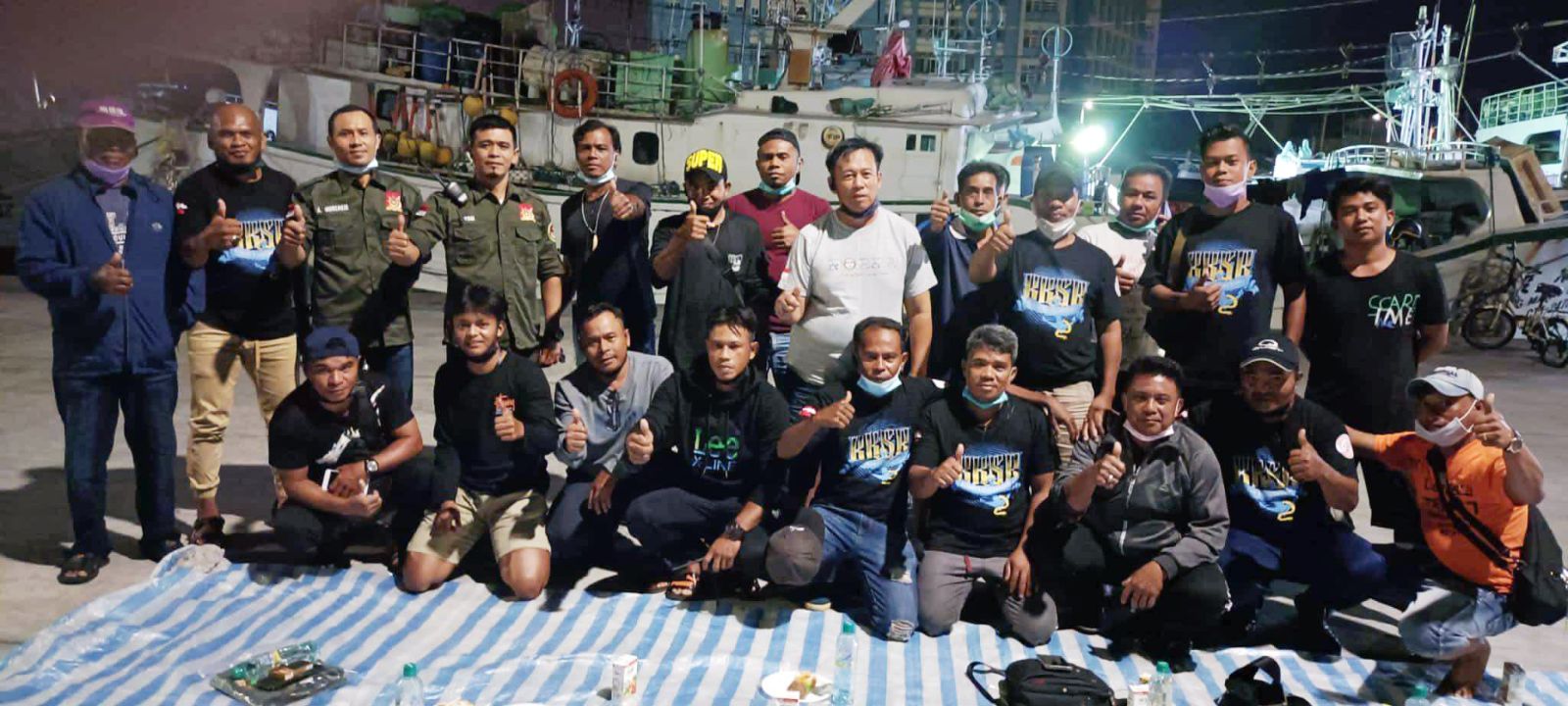 .jpeg)

ALLIES PLEDGE Wi-Fi Now for Fishers’ Rights! BAHASA INDONESIA | 中文 Nofian has worked for Taiwan’s fishing industry for 19 years, both as a coastal water and distant water fisher. For four years, from 2011–2014, the distant water vessel he worked on only came to port once in 15 months — less than once a year. The boat where Nafian worked had no Wi-Fi or other communication option, leaving him unable to report labor abuses or get in touch with his family. Only after arriving in the port was he able to contact his family and learn that his salary had not been routinely transferred to his family, as agreed in his employment contract. Without Nofian’s wages going home, his wife married another man and abandoned their three children. Meanwhile, the fish Nafian caught was sold to consumers around the world as part of a global supply chain. Like Nofian, more than 22,000 fishers, primarily migrants from Indonesia, the Philippines and Vietnam, work in Taiwan’s distant water fleet. They catch fish that end up on the plates of families worldwide and make a huge contribution to Taiwan’s economy. Taiwan maintains the second largest distant water fishing fleets worldwide, composed of more than 1,100 vessels. In 2021, Taiwan exported $1.6 billion USD in seafood products to the global market. However, a pattern of labor rights abuses has been reported in Taiwan’s distant water fishing industry, including forced labor, human trafficking, illegal fishing, and murders and disappearances at sea. In 2022, the U.S. Department of Labor (DOL) again included Taiwan-caught fish in its List of Goods Produced by Child Labor or Forced Labor. The ILO recognizes very low union density among commercial fishers who face obstacles to exercising their rights including low wages, unsafe working conditions, and the extreme geographic isolation of their workplaces - conditions which may rise to the level of forced labor. Many migrant fishers also face barriers based on their migration status which makes them more vulnerable to retaliation and deportation when they speak up for their rights. Fishers are workers and like all workers, they have fundamental labor rights irrespective of their employment status, immigration status, or where they work. Wi-Fi is necessary to make those rights real—it is the most basic access point to communication, to information, and to relationships while fishers are working at sea that can end isolation and prevent labor abuses. Through this pledge the Indonesian Seafarer’s Gathering Forum (FOSPI), the Taiwan Association for Human Rights (TAHR), Stella Maris Kaohsiung, Global Labor Justice - International Labor Rights Forum (GLJ-ILRF), and Humanity Research Consultancy (HRC), join migrant fishers, unions, and NGOs in a call to ensure fishers have Wi-Fi while working in the Taiwanese fleet. Governments — including the home and destination country of migrants, fishing ground countries, and governments where the seafood is ultimately sold and consumed — and the multinational corporations and investors at the top of seafood supply chains all have an important role to play. Please sign to stand with migrant fishers and their families in this call for encrypted Wi-Fi on Taiwanese distant water fishing vessels to ensure fundamental labor and human rights. Together we can make a change. |
|
Ways you can help: ● Write a letter to key decision makers, including the Taiwan Fisheries Agency (w3master@ms1.fa.gov.tw) and key fisheries associations (vessel owners’ associations) ● Like, follow and share posts from the Wi-Fi Now for Fishers’ Rights Facebook page. ● Join us as media support spokespersons. In particular, following FOSPI’s Facebook page. ● Make a support video and share our social media to amplify the campaign using hashtag #WifiForFishersRights ● Ask other allies to sign this Allies Pledge ● Ask fishers to sign the Fishers’ Petition ● Join fishers on a delegation ● Join our public actions |